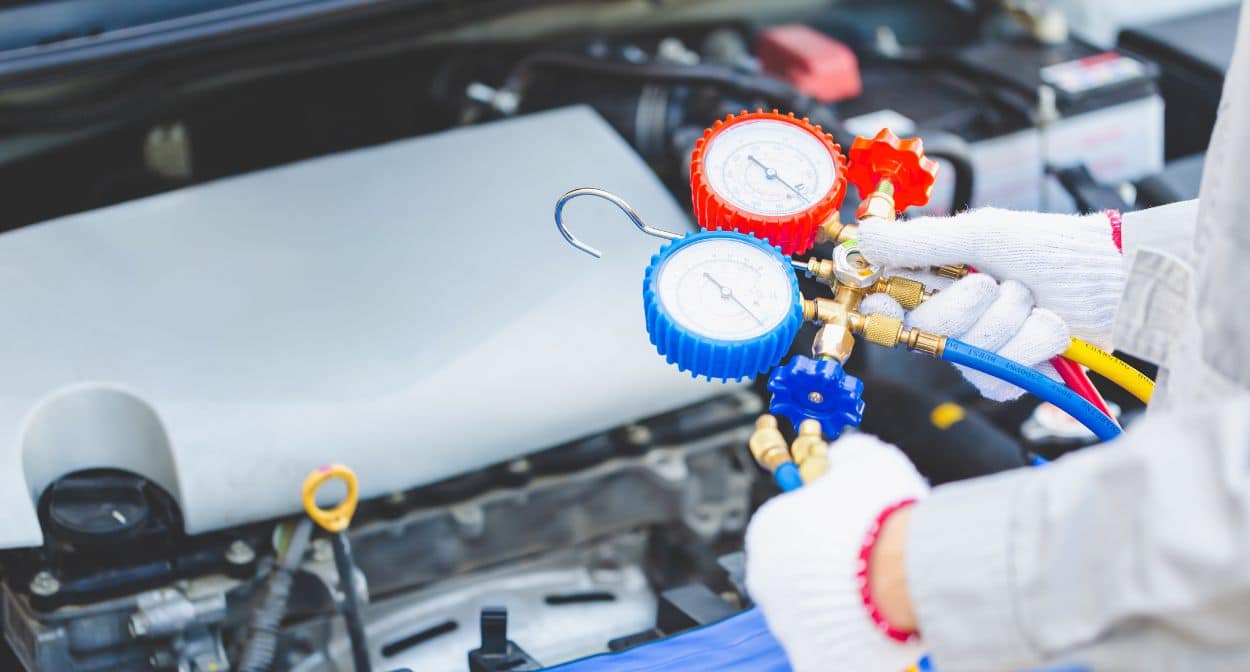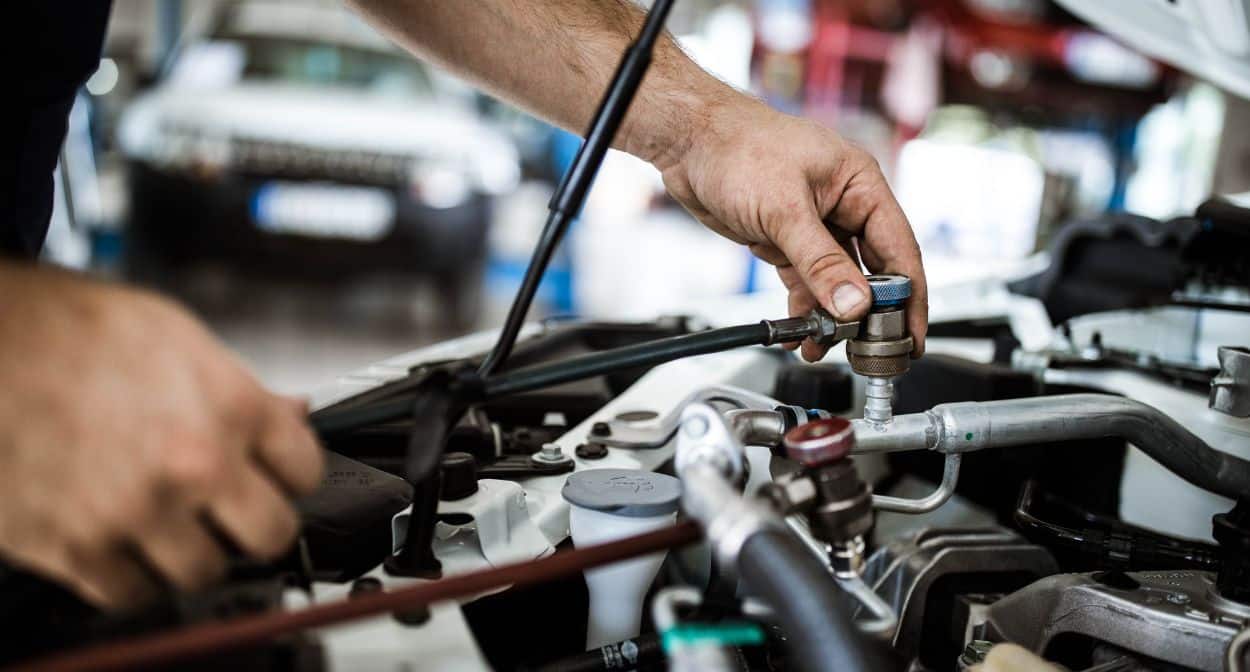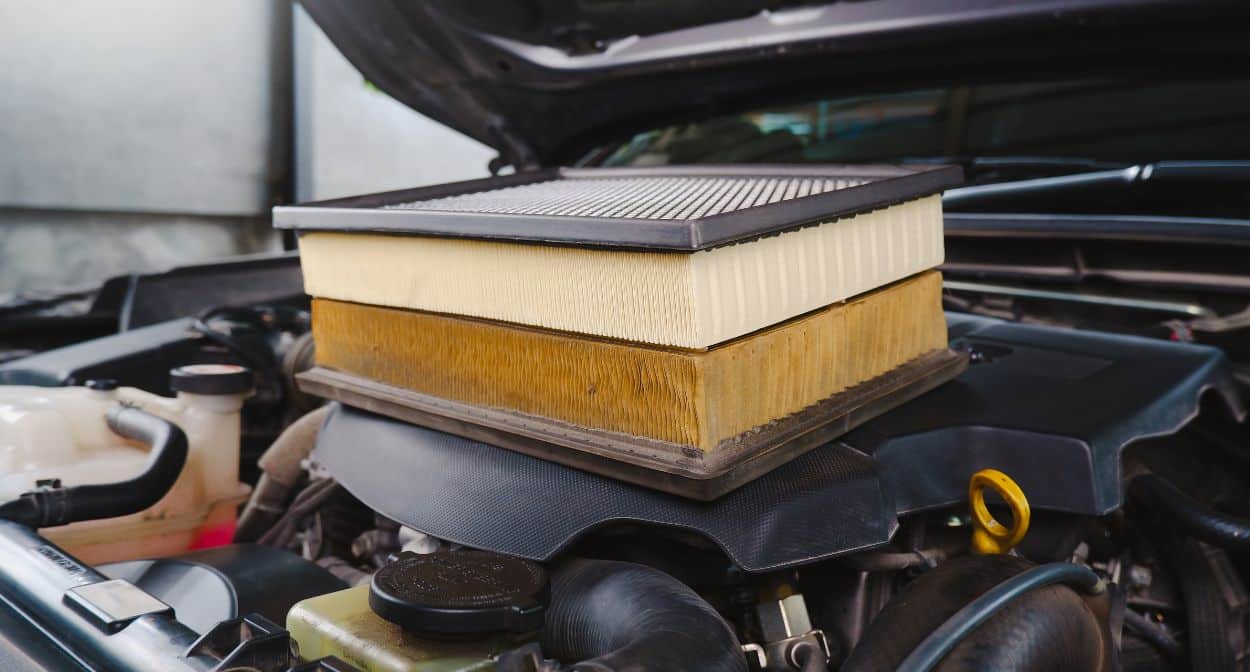Low Refrigerant: The Silent Thief of Cool Air

Symptoms
If your car’s AC starts blowing less cold air over a period of weeks or months, or if it seems to take longer to cool down the cabin than it used to, low refrigerant could be the culprit.Possible Solutions
A professional technician can check your system for leaks and recharge your refrigerant to the proper level. It’s important to note that if your system is low, there’s likely a leak somewhere that needs to be addressed.Refrigerant Leaks: The Invisible Enemy
While a slow loss of refrigerant is normal, a sudden loss usually indicates a leak. Leaks can occur in the refrigerant lines, hoses, seals, or in the evaporator or condenser units. A leak can drain your system of refrigerant, leaving your AC blowing warm air.
Signs
If your AC was working well but suddenly stops blowing cold air, a refrigerant leak is a likely suspect.
Repair Process
Locating and repairing a refrigerant leak is a job for professionals. Leak detection often involves adding UV dye to the system, which makes leaks visible under a special light. Once found, leaks can often be repaired. However, if the leak is in the evaporator or condenser, replacement might be necessary. Beware of DIY leak repair kits, as they are often unreliable and can introduce damaging sealants into your system.
Failed AC Compressor: The Heart of the Problem

Symptoms
A failed compressor often results in no cold air whatsoever. You might also hear strange noises from under the hood, and the clutch on the front of the compressor may not engage when you turn on the AC.Repair Options
A failed compressor is often one of the more expensive AC repairs. Depending on the age and condition of your vehicle, it may be more cost-effective to replace the entire AC system rather than just the compressor.Electrical Gremlins: Fuses, Relays, and Motors
Your car’s AC system relies on a network of electrical components to function. Fuses protect the system from power surges, relays switch power to the compressor and fans, and the blower motor pushes air through your vents. A problem with any of these components can cause your AC to stop working.Symptoms
Electrical issues can cause your AC to work intermittently, only function at certain fan speeds, or not turn on at all.Troubleshooting
Check your car’s fuse box for blown fuses first, as this is the easiest issue to fix. If the fuses are good, the problem could lie with a relay or the blower motor. These issues often require professional diagnosis and repair.Clogged Cabin Air Filter: The Invisible Barrier

Signs
Reduced airflow from your vents, even when the fan is on high, is a telltale sign of a clogged cabin air filter. You might also notice a musty smell when you turn on the AC.Fix
Replacing a cabin air filter is a straightforward process on most vehicles and is relatively inexpensive. It’s a good DIY job for most car owners. Check your owner’s manual for the location of your filter and how often it should be changed.Troubleshooting Your AC: Where to Start
Before you bring your car in for service, there are a few basic checks you can do to help identify the problem:
- Settings Check: Make sure your AC controls are actually set to “Cool” and that the fan is turned on. It sounds simple, but sometimes the problem is just an incorrect setting.
- Cabin Air Filter: Check your cabin air filter. If it’s dirty, replace it and see if that improves airflow.
- Visual Inspection: Pop the hood and look for any obvious refrigerant leaks. Check hoses and connections around the AC compressor, condenser (in front of the radiator), and evaporator (usually inside the cabin).
If these basic checks don’t reveal the problem, it’s time to bring in the professionals. This is especially true if you suspect a refrigerant leak or a compressor problem. These issues require specialized tools and knowledge to diagnose and repair correctly.

